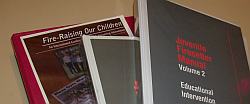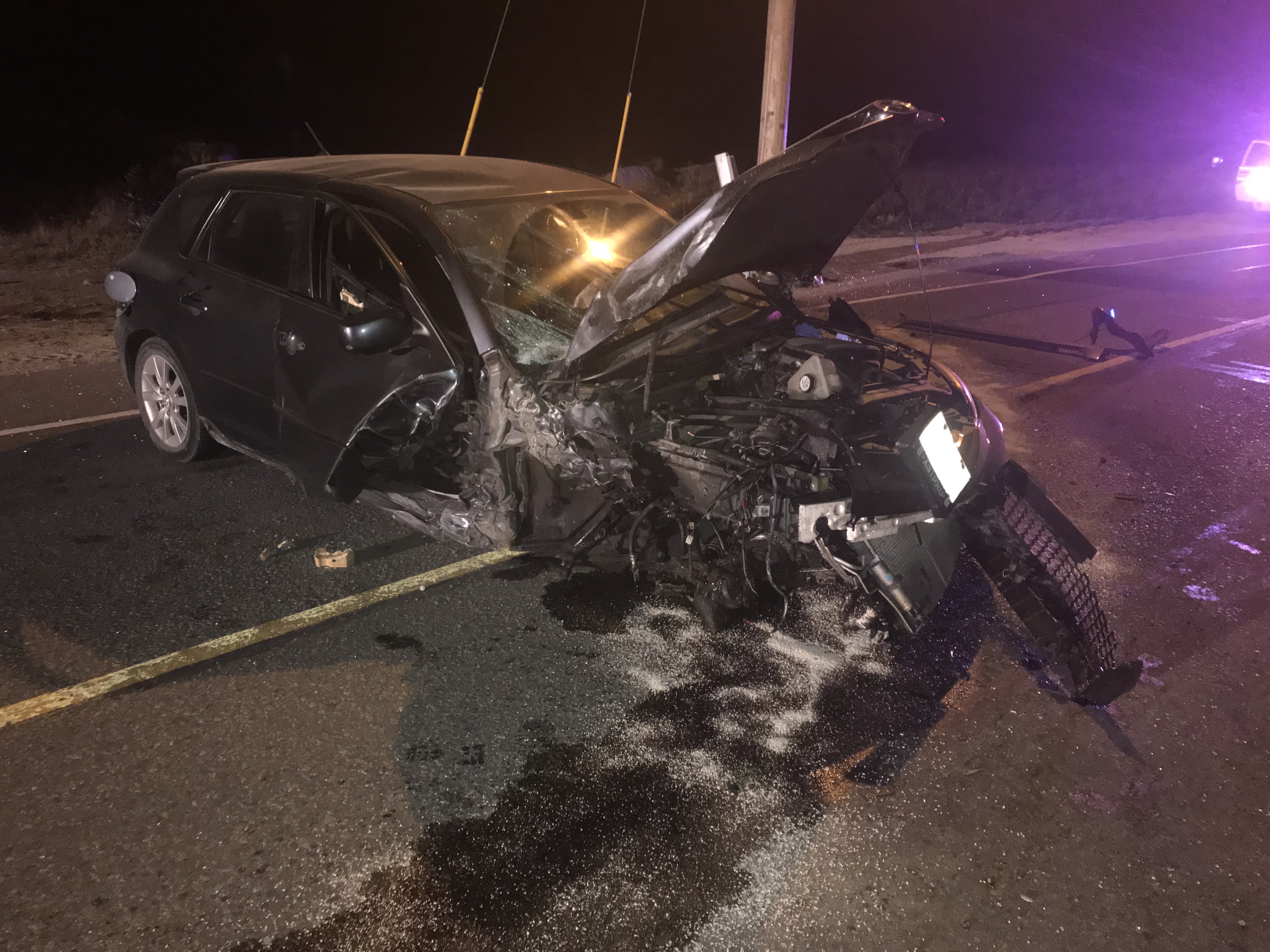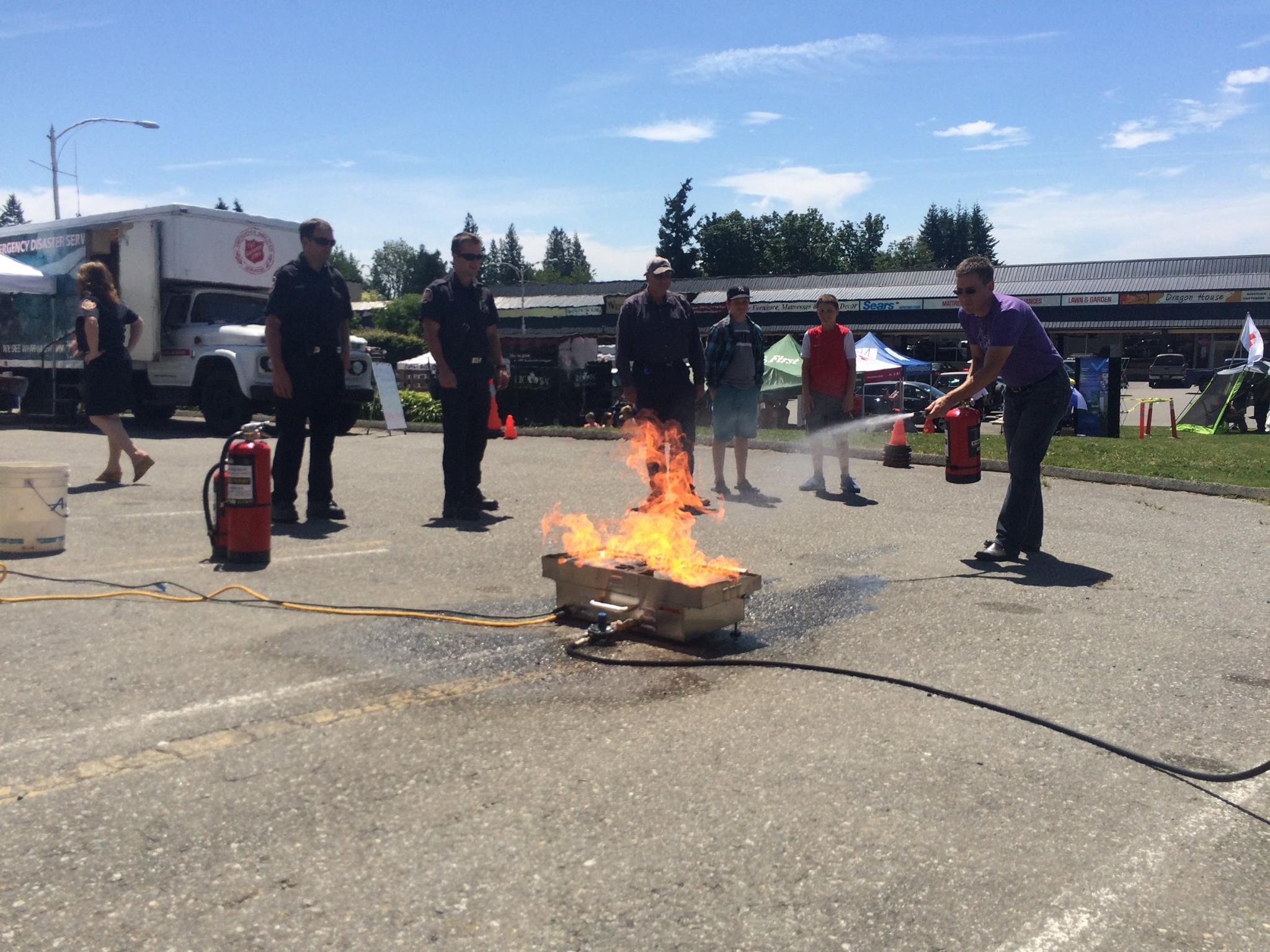Emergencies:
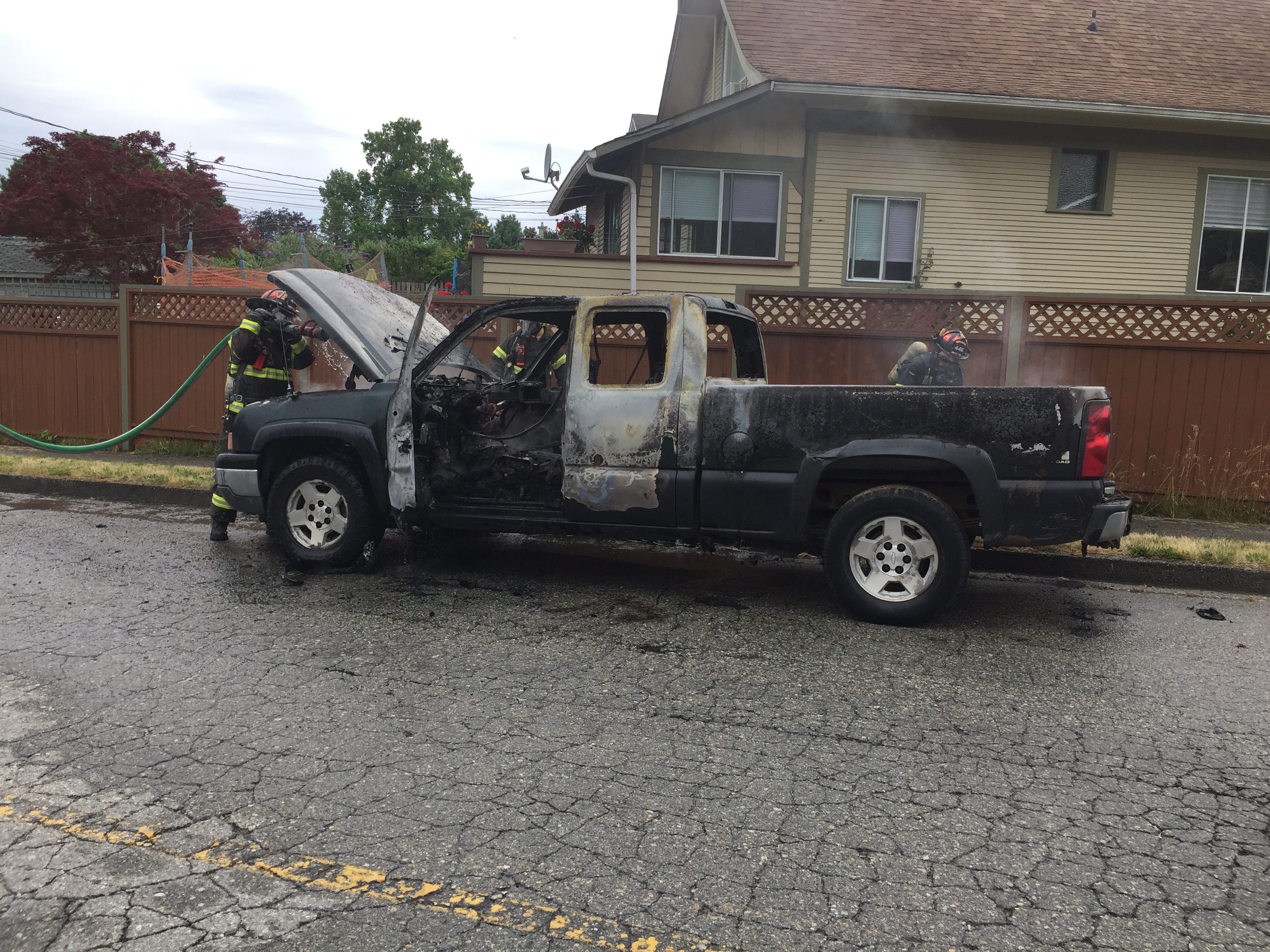
Powell River’s fire fighters handle all types of structure fires including house, apartment, garage, school, commercial and industrial fires. We also fight fires involving motor vehicles, aircraft, marine vessels, garbage containers, as well as grass, bush and interurban fires, each coming with its own set of challenges. In addition, we respond to incidents which have a great potential for fire, such as fuel spills, propane and natural gas leaks.
Fire fighters perform many tasks when fighting a structure fire, including searching for victims, and attacking, containing, and extinguishing the fire. Initially, fire fighters enter the burning structure for a systematic search and rescue of potential victims and/or to attack the fire. If fire victims are found, they are removed and placed in a safe area. Additional fire fighters may strategically cut holes in the roof or break out certain windows to direct the smoke and/or fire in a certain direction. Once the extent of the fire is known and controlled, fans are set up for additional ventilation. These fans push in clean air, which drives the smoke outside.
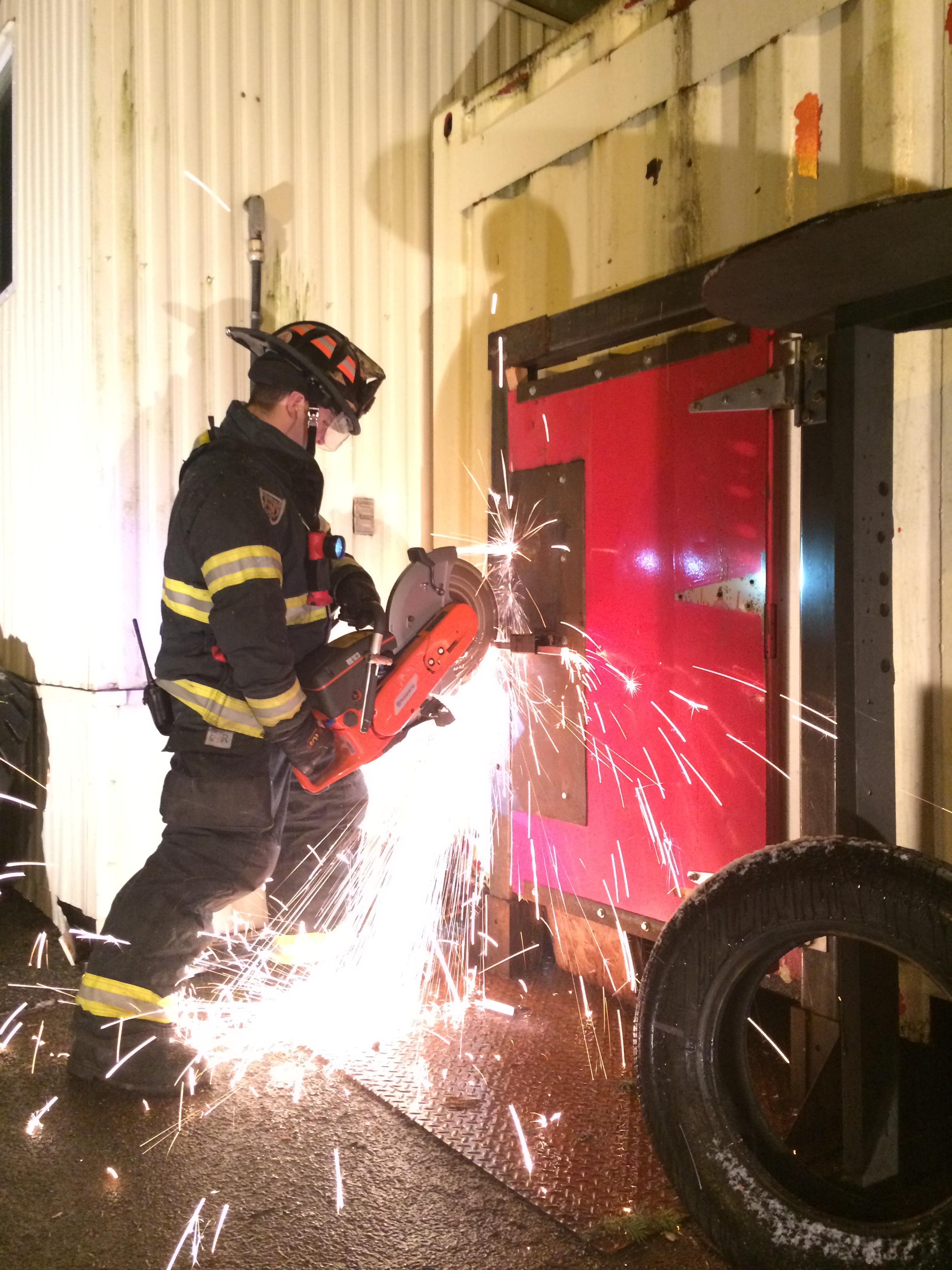
Once the fire is “knocked down,” fire fighters give the fire scene an overhaul by checking for hidden fires in ceilings and walls through the use of pike polls and thermal imaging cameras. All hot spots need to be found and extinguished. At this stage tarps are often used to protect people’s furniture and personal possessions. Lastly, the on-scene fire investigator then determines the cause of the fire, which helps prevent future fires and may expose fraud.
Hazardous Materials
It is not uncommon for hazardous materials to pass into or through Powell River by truck or semi-trailer making the potential for an accident or spill ever-present. Members are trained to a level where we can respond to, identify and assess an incident, evacuate persons exposed to the hazard, set up decontamination zones, and prepare entry teams to deal with the hazardous product. Some of the special equipment required to safely handle hazardous materials incidents include totally encapsulation Level A protective suits. Two common chemicals that are deemed hazardous materials that are found in the City of Powell River include ammonia and chlorine. These chemicals are used in places like ice rinks and swimming pools. Sadly, late in 2007, a methamphetamine drug lab was confirmed in the city. As a result, drug labs are now on our list of hazardous materials which we may come across.
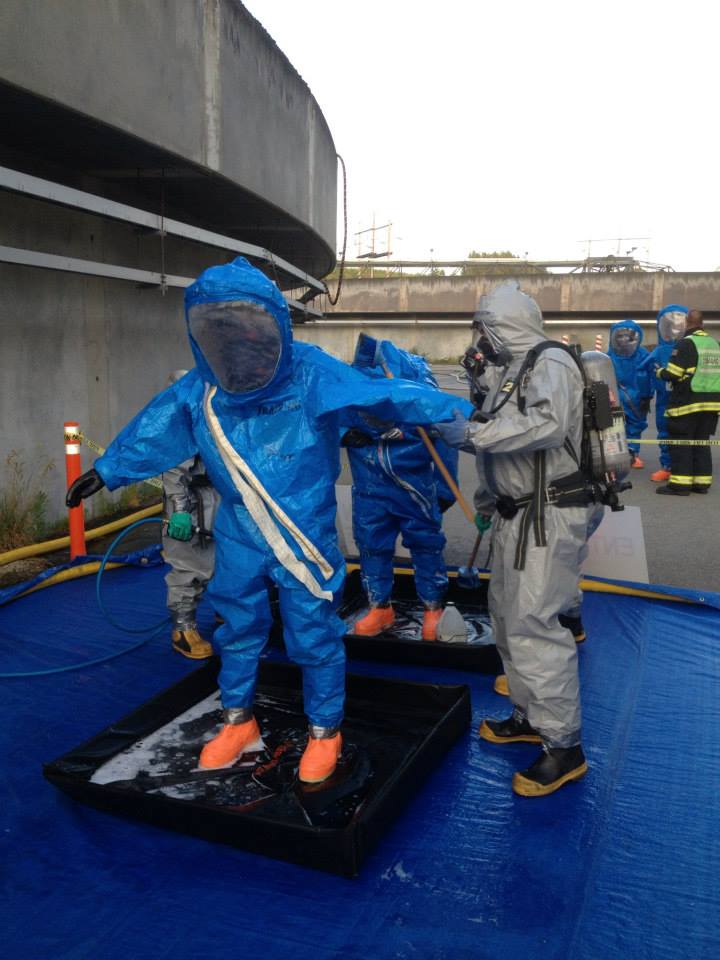
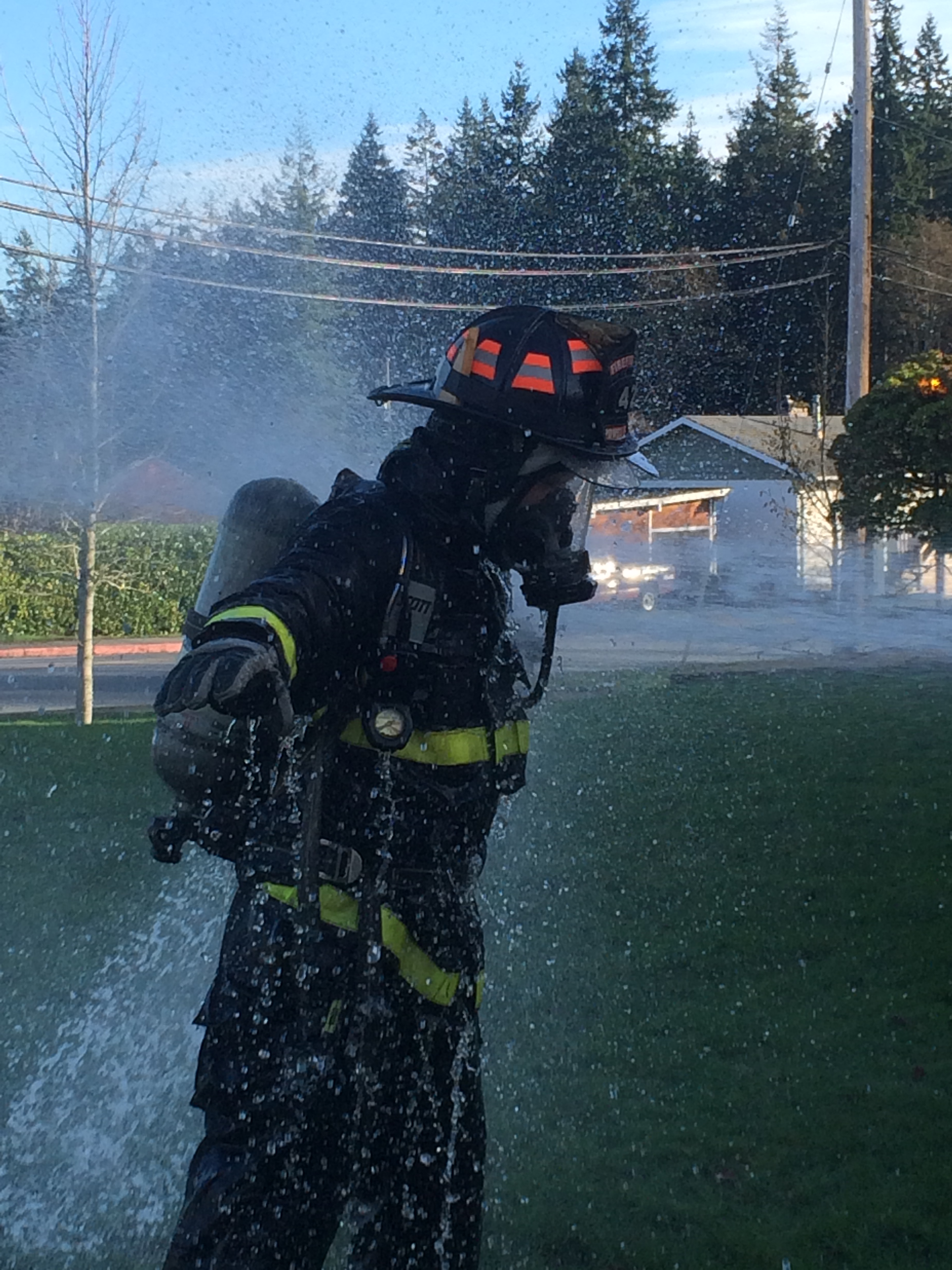
Auto Extrication
A fire fighter’s role at a motor vehicle accident varies greatly. Fire fighters check the scene for hazards such as downed power lines, damaged electrical kiosks, whether there is fuel leaking and what type of fuel it is, and any other potential danger. We then analyze the type of vehicle or equipment involved and the number of occupants/patients in order to plan an efficient and safe rescue. We protect the scene and patients from other vehicle traffic and ensure that the vehicle is stable so it does not shift during the rescue, which could endanger those entrapped as well as emergency personnel. When a patient has suffered a serious injury, specialized tools (rescue airbags or the jaws of life) and techniques are used to remove parts of the vehicle from around the patient. Fire fighters may also use small hand tools, such as hacksaws, air chisels, reciprocating saws, or wrenches.
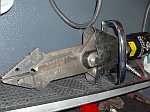
Improvements by the automotive industry have resulted in increased safety for vehicle passengers, but in a serious motor vehicle accident they make a fire fighters job more challenging and dangerous. The same lightweight high-strength alloys in the passenger safety cage that protect the vehicle occupants impede our efforts to treat and/or free them from the wreckage. We need to stay on top of changes in vehicle designs, extrication techniques and new extrication tools able to deal with the changing technology. We must be careful to avoid setting off un-deployed airbags (which activate at 300 feet per second) and seatbelt pre-tensioners (which have explosive charges in them).
Since Powell River’s Professional Fire fighters are all trained and licensed to provide life saving pre-hospital care, we help the injured not only by performing rescue services but also by providing first aid on scene, such as supporting the patient’s head and neck, stabilizing any broken bones, controling bleeds, etc. – possibly before other medical assistance arrives.
Once the patients and their vehicles are removed from the accident scene, fire fighters clear the area of debris and more often than not are the last to leave the emergency scene
Technical Rope Rescue
Powell River’s firefighters are trained in Technical Rope Rescue. Whether people have fallen from cliffs, are over a bank, or for whatever reason are positioned on a bridge, tree, building or tower crane and are unable to come down on their own, we are able to carry out the rescue.
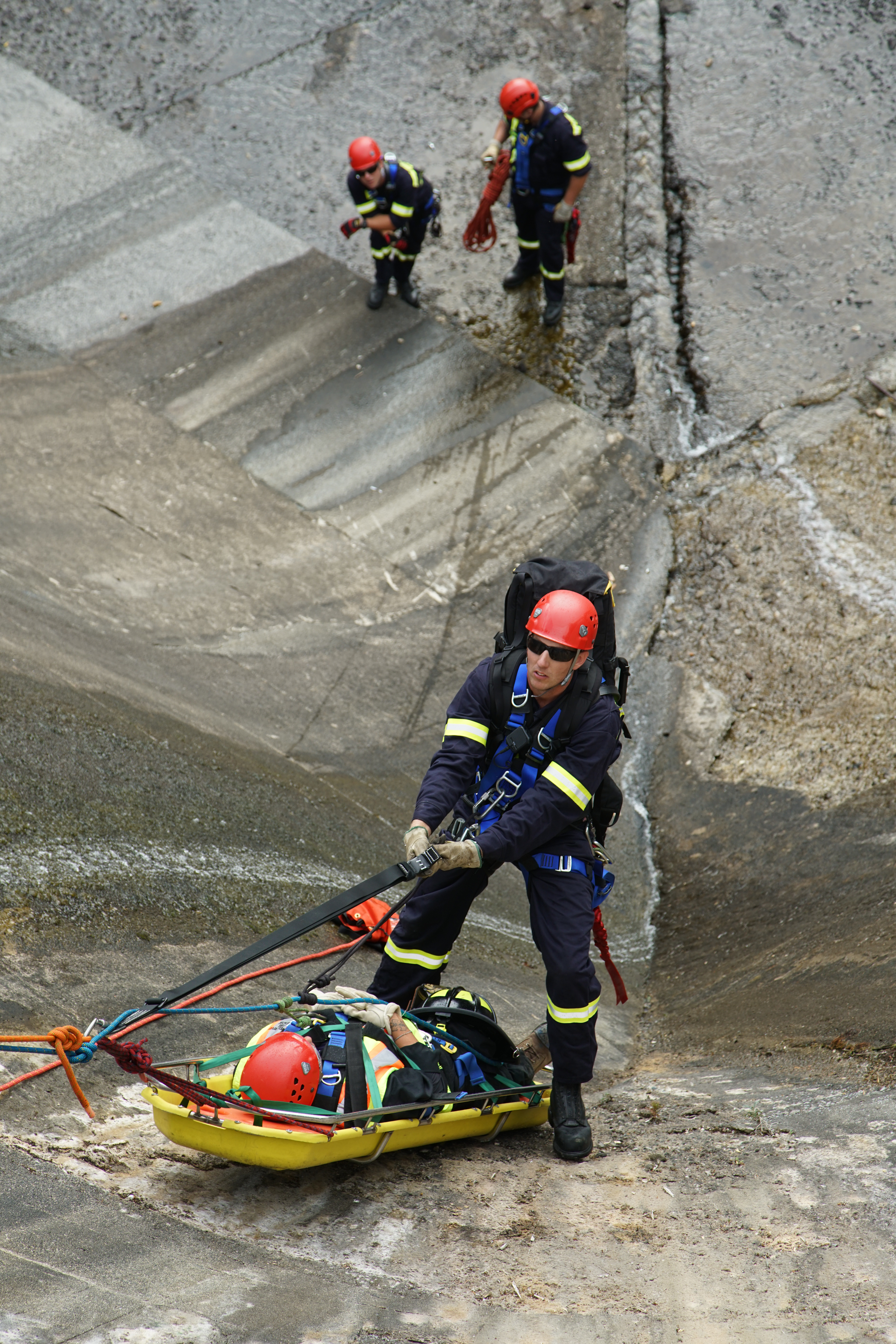
In addition we are also trained to rescue people if they have entered a confined space such as sewers, barges, or excavation sites. Through the use of climbing equipment such as ropes and harnesses, in conjunction with stretchers, pulleys, lowering and lifting systems, we are able to raise or lower the patient safely to the ground.
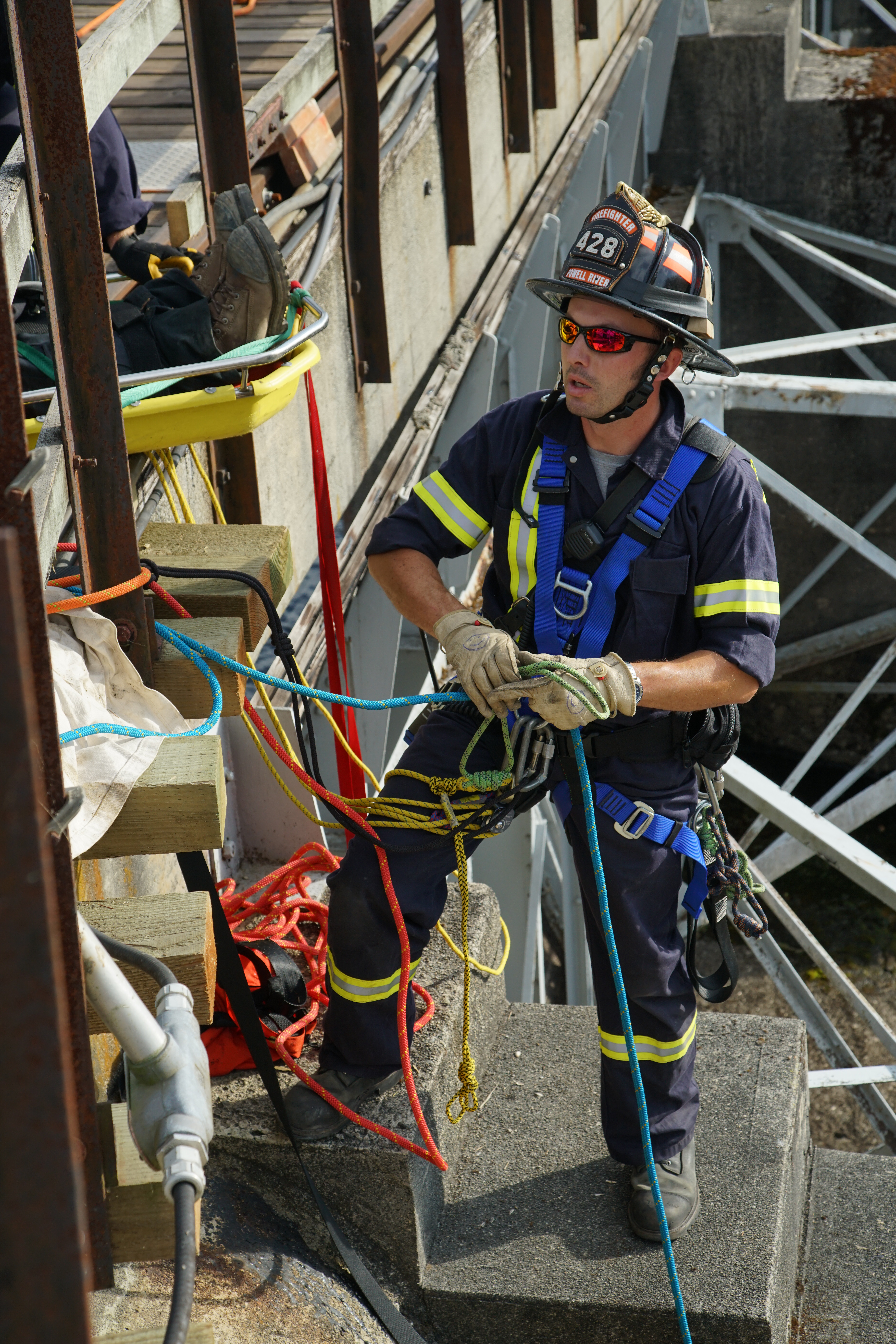
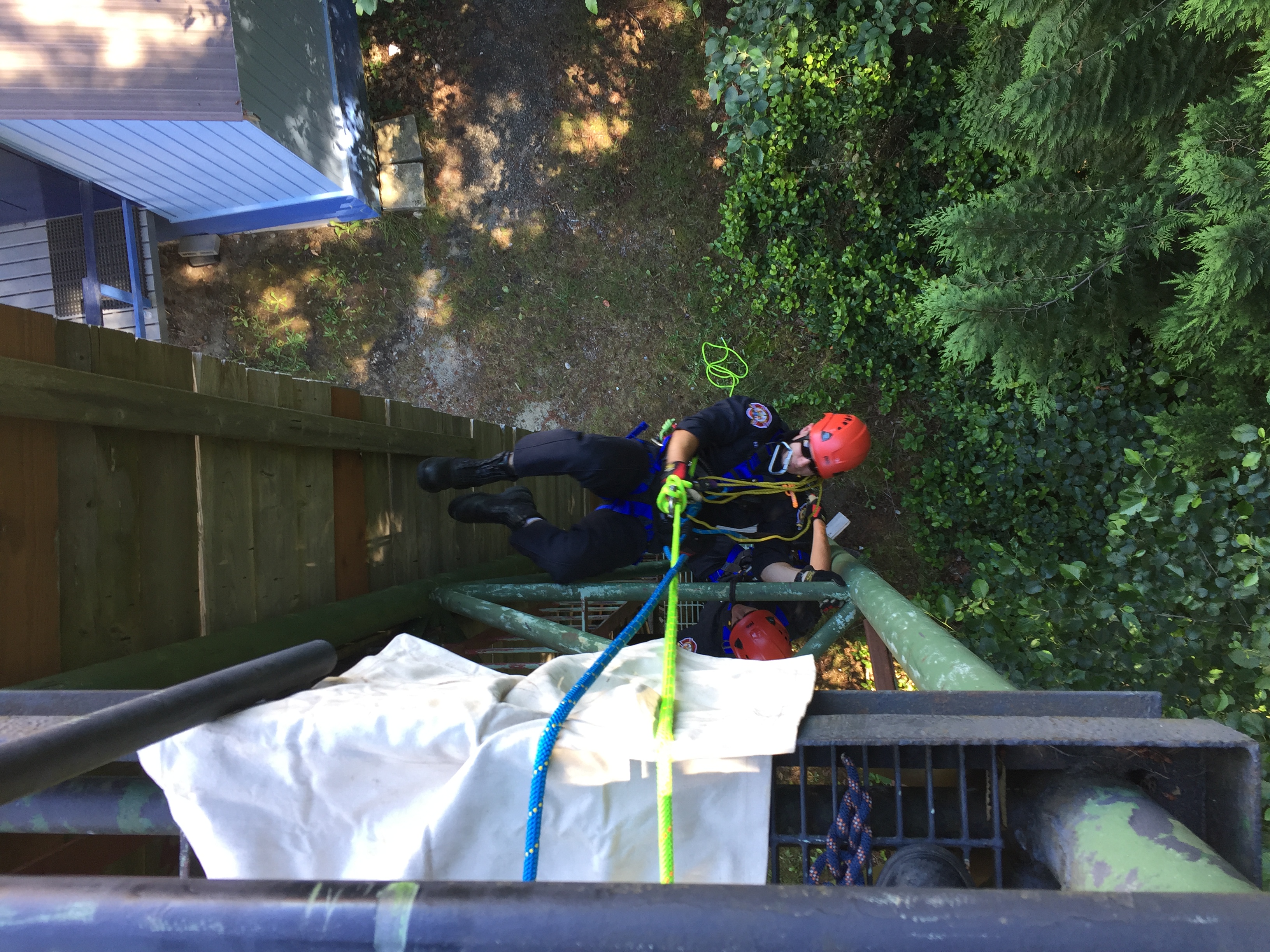
Public Assists
As fire fighters, we find ourselves assisting the public in many different ways; from helping those experiencing a flood, to assisting those who have locked their children in their car. In addition, we assist the public through the picking up of hypodermic needles. In 2007, we picked up a total of 843 needles that were carelessly discarded through out the community. If you come across one of these needles, be very careful. Do not touch it and call 911. Let us come by and pick it up.
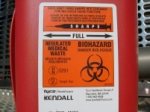
Medical First Responders
Professional Fire Fighters in Powell River are all trained and licensed to provide life saving pre-hospital care to people who are injured or are experiencing a medical problem. We respond to anything from a choking child to a person suffering from a fall or heart attack. During a heart attack, the use of a automatic external defibrillator (AED) with in the crucial 4 – 6 minutes from the time of cardiac arrest will significantly increase the survival chances for patients. You will be reassured to know that the staffed first response unit in the City of Powell River carries an AED.
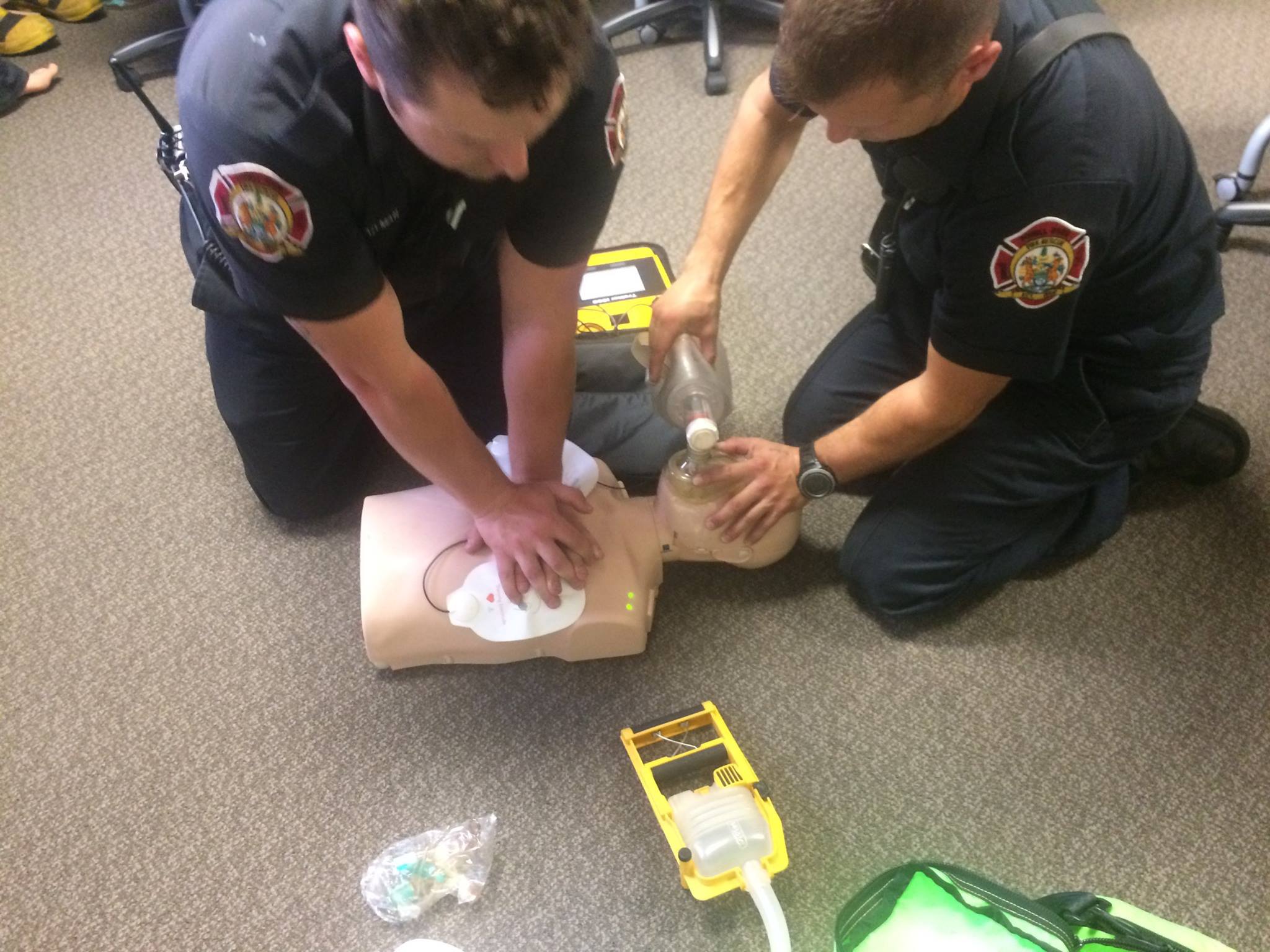
FACT: According to the Heart and Stroke Foundation of Canada “For every one minute delay in defibrillation, the survival rate of a cardiac arrest victim decreases by 7 to 10%. After more than 12 minutes of ventricular fibrillation, the survival rate of adults is less than 5%”
Reference: Larsen MP, Eisenberg MS, Cummins RO, et al. Predicting survival from out-of-hospital cardiac arrest: a graphic model. Annals of Emergency Medicine 1993;22:1642-1658.
For more information visit www.heartandstroke.ca
What We Do – Services:
Fire and Safety Inspections

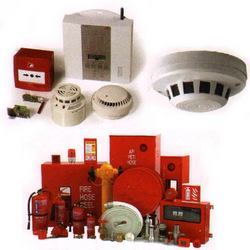
Powell River’s Professional Fire Fighters are assigned a number of inspections per month to businesses, apartment buildings, churches, and schools. We ensure these buildings comply with the B.C. Fire Code, that there is overall worker and public safety, and that inhabitants or workers are aware of fire escape procedures. Your fire dept will also provide assistance with fire drills. We will help show employees how respond to fire alarms correctly and teach why fire drills should be taken seriously.
Fire Extinguisher Demos
Headed by the Public Educator-Office Coordinator, a lecture and video are provided for fire extinguisher training. How to respond and how to use a fire extinguisher is covered, followed by hands on training with a controlled fire in a burn tray. Contact station 1’s office line 604-485-4431 if you would like to line up a time and place. (It’s free!!)
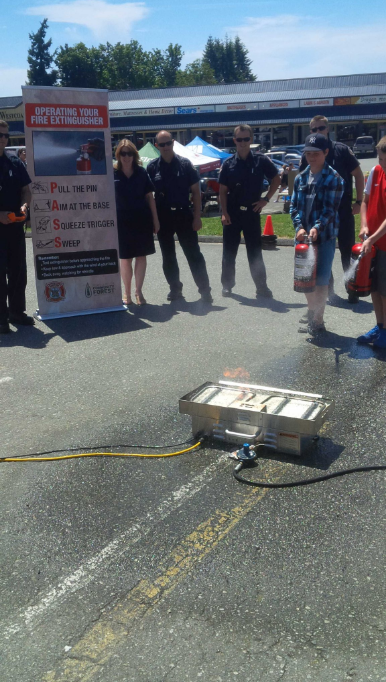
Juvenile Fire Setter Program
This program is designed to address the problems and concerns with children that play with fire. Each year hundreds of children in North America are hurt or killed in fire related incidents. This program is intended to stop any problems with fire play before a disaster occurs. Caregivers, as well as schools, are encouraged to contact the Fire Department and take advantage of this valuable program.
